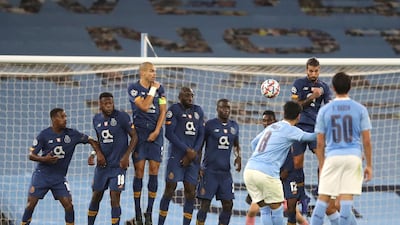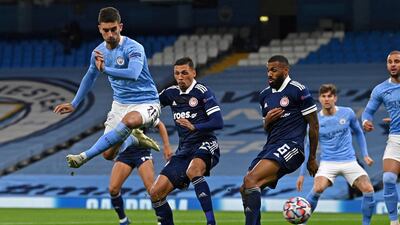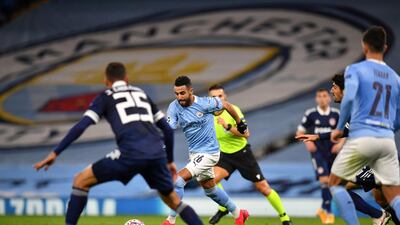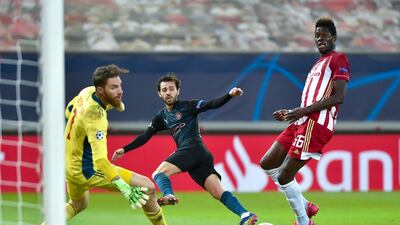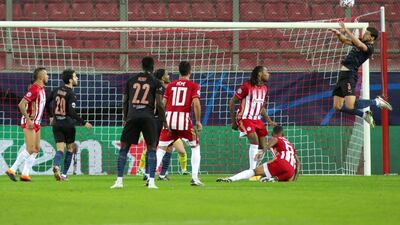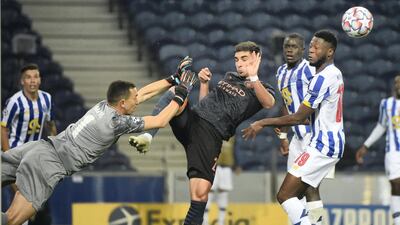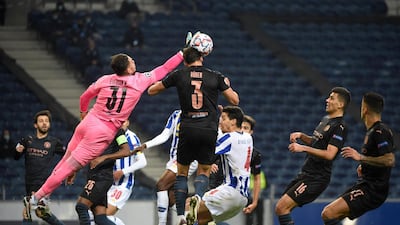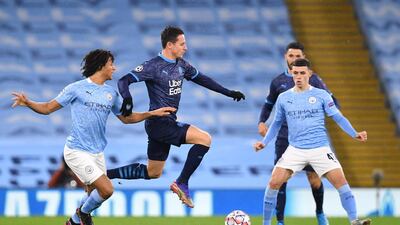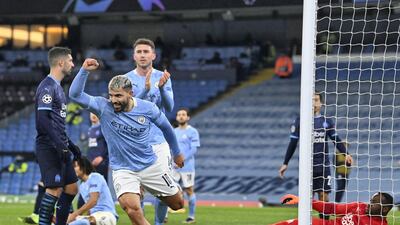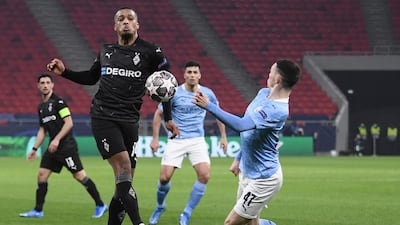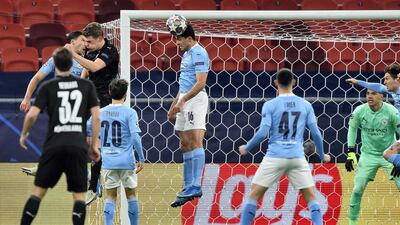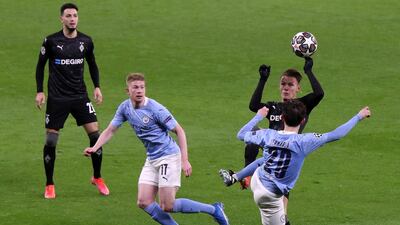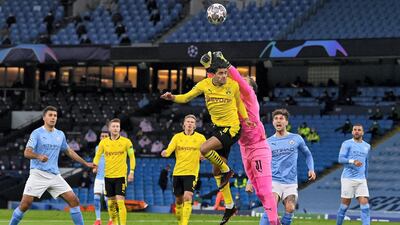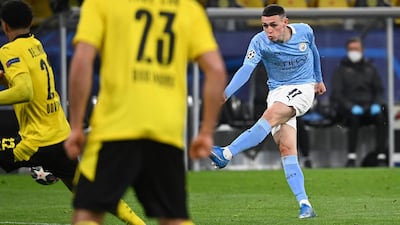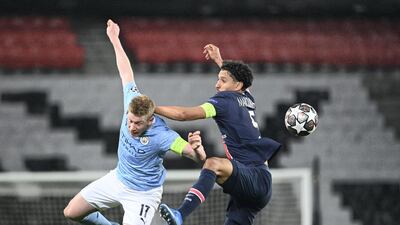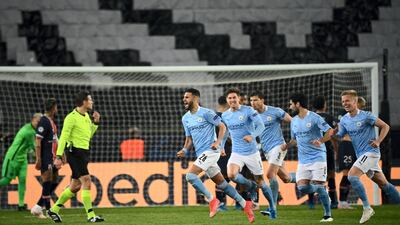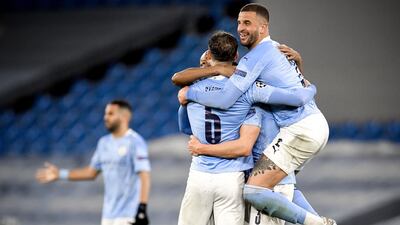In his faraway eyes, as he trudged down the tunnel at the Etihad, Angel Di Maria concealed a stack of painful memories.
He had let himself and his Paris Saint-Germain colleagues down and lost his head in the face of Manchester City’s calm resilience. With his ill-tempered stamp on Fernandinho, Di Maria became the second PSG player in the semi-final tie against Manchester City to be sent off. He recognised his team was on its way to elimination.
Di Maria had been in this dispiriting zone before, some 10 years earlier, exasperated by a Champions League semi slipping from his side’s grasp against a Pep Guardiola team, who, having weathered some early hurry-up from eager opponents, then exerted a control that became irresistible.
The previous time it happened to Di Maria, he was playing for Real Madrid, and they went down to 10 men – Pepe red carded – just after the hour on the way to losing 3-1 on aggregate to Guardiola’s Barcelona.
By the time that season’s final had been won, Guardiola’s team beating Manchester United 3-1 at Wembley, Pep’s Barca side were being hailed as the greatest club side in history.
What would not have been forecast back in 2011 was that Guardiola would wait a decade to reach his third European Cup final as a coach, that a manager whose brilliant reputation earned him the trust of Barcelona, Bayern Munich and City would keep stumbling in the knockout phase, again and again, through eight Champions League campaigns.
Opponents have found various means to unpick Pep’s plans. There was the semi-final stymied by a crabby Chelsea in his final season at Barcelona; there were a trio successive last-four exits with a Bayern that had Arjen Robben and Franck Ribery in their pomp, then Robert Lewandowski up front.
As for the City agony in Europe, it has been extended so long it came to seem like a jinx: Monaco, Lyon, Tottenham and Liverpool were all underdogs when they knocked out Guardiola's men.
Gallery: City's run to Champions League final
Among the warming, uplifting details of an unseasonably cold night in Manchester on Tuesday was the introduction of Sergio Aguero five minutes from the end.
No City player has suffered the frustrations of the club’s peculiar battle with the knockout phase of club football’s most prestigious competition as Aguero. He was there the last time City played a semi, the bland, 1-0 aggregate loss to Real Madrid in 2016.
Guardiola took over after that, but the angst remained. Aguero scored twice and set up another in the last-16 tie against Monaco and still ended up on the wrong side of an away-goals elimination; Aguero would be hastened back from injury to try to salvage, in vain, a losing quarter-final against Liverpool the next year.
In 2019, he was entitled to believe that by setting up one goal and scoring another to put City 4-3 ahead against Tottenham Hotspur, a glass ceiling had finally been shattered. Spurs went through.
Last August, Aguero watched from the sidelines, nursing an injured knee as Lyon ambushed City in the last eight.
Aguero’s last official fixture with City will be the European Cup final in Istanbul, his and his club’s first. He cannot expect to start it, but, if fit, will surely be given a role if City have by the closing stages established the same command they gained over PSG by the end of an epic, riveting semi.
Aguero has heard it be pointed out more than once that, until Tuesday night, no Guardiola team had ever reached a European final without Lionel Messi propelling them there.
That argument is now closed, and the City manager can now prepare for three weeks of wider comparison between this City and Barcelona’s champions of 2009 and 2011.
City may have no Messi, but they have Kevin de Bruyne, and the defensive unit Guardiola takes into his third European Cup final as a coach will look sturdier than the ones he lined up in his first two.
In 2009, for the 2-0 win over United in Rome, suspension and injury had ruled out three senior Barcelona defenders, so Yaya Toure was corralled into a makeshift back four; two years later, Carles Puyol, the captain, did not make the starting line-up, injured.
This time, Guardiola should have John Stones in full renaissance, Kyle Walker back at his best, Oleksandr Zinchenko fresh from a performance against PSG that ranks among his finest for City and Ruben Dias celebrated as the best signing of the season.
“When the difficult times come, we step up,” said Dias, blocker and interceptor in chief through the 180 minutes against PSG, and, in his own way, the standard-bearer of a club who have emphatically consigned all those brittle, losing knockout ties to the past.































